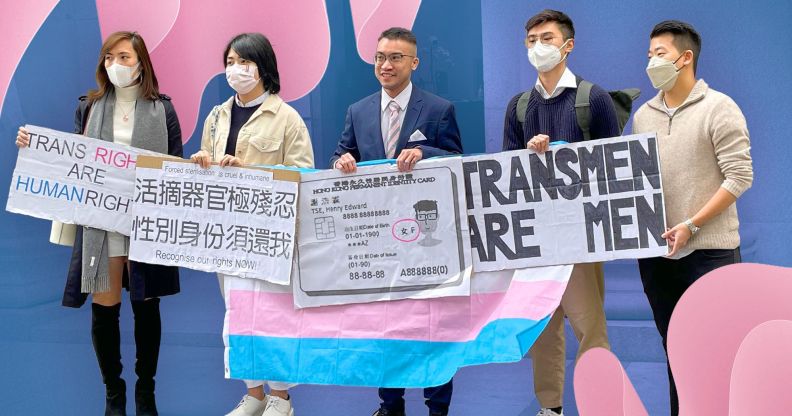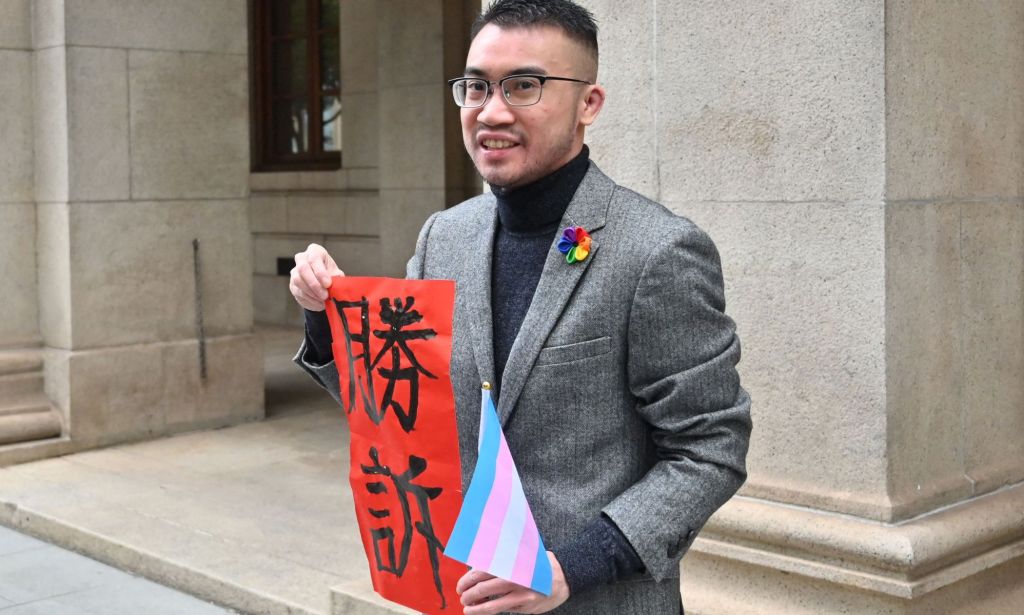Hong Kong’s surgery for ID change policy slammed by trans activists

Henry Edward Tse said his Court of Final Appeal win was a “staged victory” given the lack of trans rights legislation in Hong Kong. (Transgender Equality Hong Kong/Envato)
Hong Kong will no longer require trans people to undergo full gender-affirmation surgery before being allowed to change gender markers on their IDs, but LGBTQ+ activists say the new policy still “violates the bodily integrity” of trans people.
Last year, Hong Kong’s Court of Final Appeal ruled in favour of Henry Tse and another trans activist, identified only as Q, who launched appeals against regulations that prevented transgender men and women changing the gender marker on mandatory ID cards unless they underwent certain gender-affirming surgeries.
The rules would have required Tse and Q to undergo procedures which would include the removal of their internal reproductive organs and require the construction of a penis or “some form of a penis” for female-to-male transition, and the removal of the penis and testes and the construction of a vagina for male-to-female transition.
Under the new policy, unveiled by authorities in the special administrative region of China on Wednesday (3 April), trans people do not need to undergo this level of medical procedure to apply for a gender marker change.
However, the revised requirements state that transgender men must undergo top surgery while trans women must have bottom surgery.
Trans people will have to undergo hormone replacement therapy for at least two years before being able to apply for a change to their ID card.
Applicants must also make a statutory declaration to confirm they have gender dysphoria and that they’ve lived as their true gender for at least two years, Time reported.
Tse expressed concern about the surgical requirements in the policy, the South China Morning Post reported.
“The new policy does not mean that all the discrimination and harm caused by the long delay will be wiped out,” he said.

Tse’s legal representative, Wong Hiu-chong, welcomed the revised policy but added that they are “concerned about the heavy emphasis on undergoing blood tests and submission of blood reports on hormone levels”, adding: “Our clients have waited a very long time for such an unconstitutional policy to be revised, and for them, the wait has been painful.
“We do not see the justifications but [do see] the contravention of individuals’ rights, forcing them to take unnecessary medical tests and their right to privacy.”
Quarks, an organisation for trans youth, and the Hong Kong Trans Law Database said in a joint statement that they were “extremely disappointed” by the new policy, adding: ‘[It] continues to violate transgender people’s right to privacy and bodily integrity.”
Hong Kong’s immigration department, which oversees identification and visa issues, didn’t “communicate with the transgender community or organisations at all in the process of revising the new policy requirements”, and the new policy lackd “clear medical standards”, they claimed.
Tse previously told PinkNews that he felt “outed” as trans every time he presented his ID card, which had not been changed to reflect his male gender.
“In Hong Kong, the simplest thing like using the bathroom [toilet] in a public space, it’s impossible, because it’s illegal for me,” he said. “It’s illegal for me to use the male bathroom and it’s illegal for me to use the female bathroom because of how I look.
“I’ll scare [women] by making them feel threatened in some way. It would constitute a crime of loitering in Hong Kong. That means I’m basically unable to live a normal life.
“I try to avoid all gender-segregated facilities. I try not to use the gym. I try not to go swimming.”

